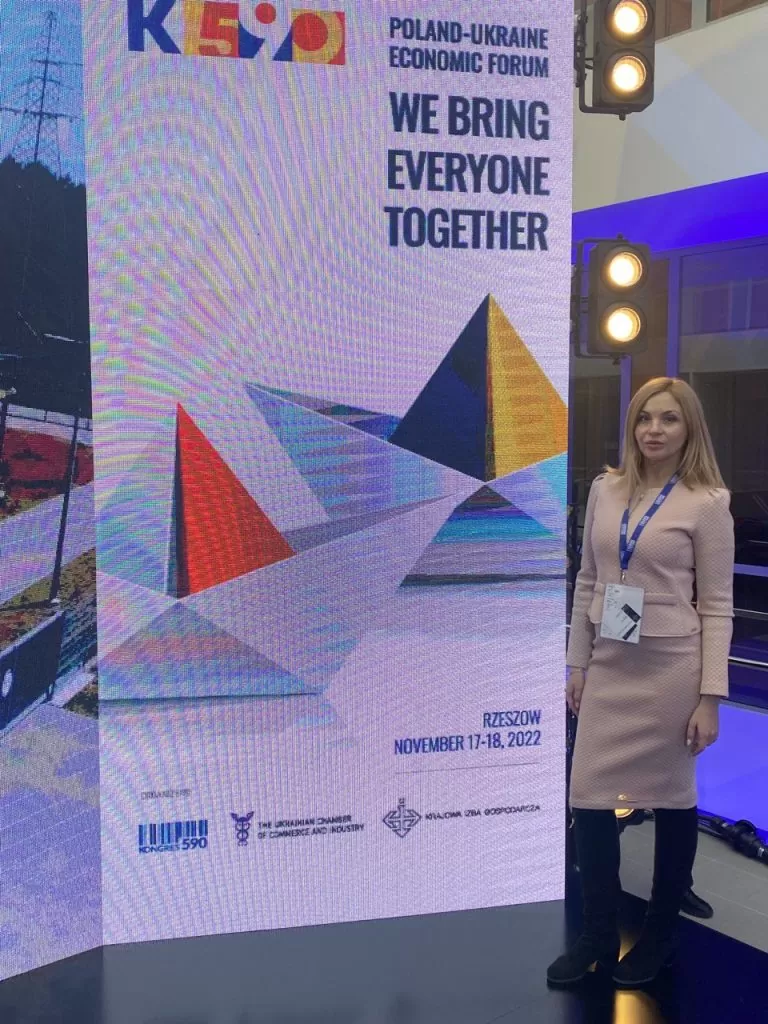
On 2 February 2024, the conference ‘AgroPROcessing 2024: New Horizons of Processing in the Agro-Industrial Complex’ was held in Kyiv, focusing on increasing efficiency and new opportunities for the development of the Ukrainian agro-sector.
Anna Vynnychenko (Official Representative of the Ukrainian Chamber of Commerce and Industry in Poland, Head of InterTradeAgency) mentored the discussion session of the conference ‘Development of production and sales of finished products from industrial and other crops in the Ukrainian agro-industrial complex in 2024’, which covered the following topics:
- Dynamics of changes in the processing of industrial crops: analysis and forecasts
- Industrial evolution in processing, production and sales of finished products
- Strategic directions of development of industrial crops processing in the Ukrainian agro-industrial complex
The topic of processing transformation and its potential in 2024 for the agricultural sector aroused great interest among the audience. It was the case when demand exceeded supply. The discussion session aroused so much interest among the participants that there were not enough seats in the hall. Instead of the promised 700 people, the Summit was attended by more than a thousand participants. This proves once again that the topic of agriculture is at the peak of popularity and that Ukrainians' plans cannot be broken.
The conference participants were very active in exchanging experiences, establishing new partnerships and sharing business ideas. This, in turn, will have a positive impact on the stability and competitiveness of agriculture in the face of military aggression and logistical problems.
Ukraine continues to develop, companies are not afraid to invest in the agricultural industry, and all of this together is driving us to victory.
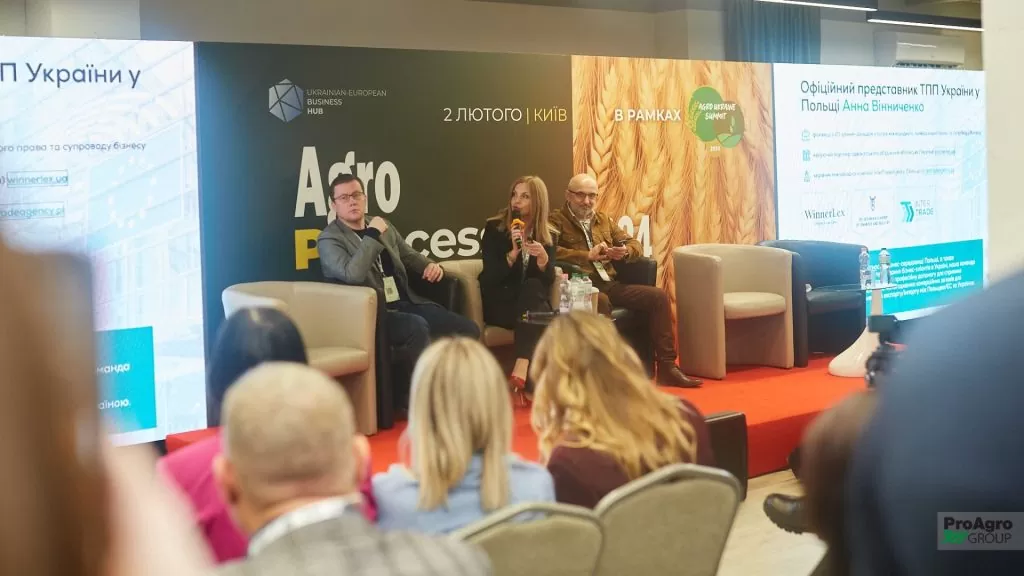
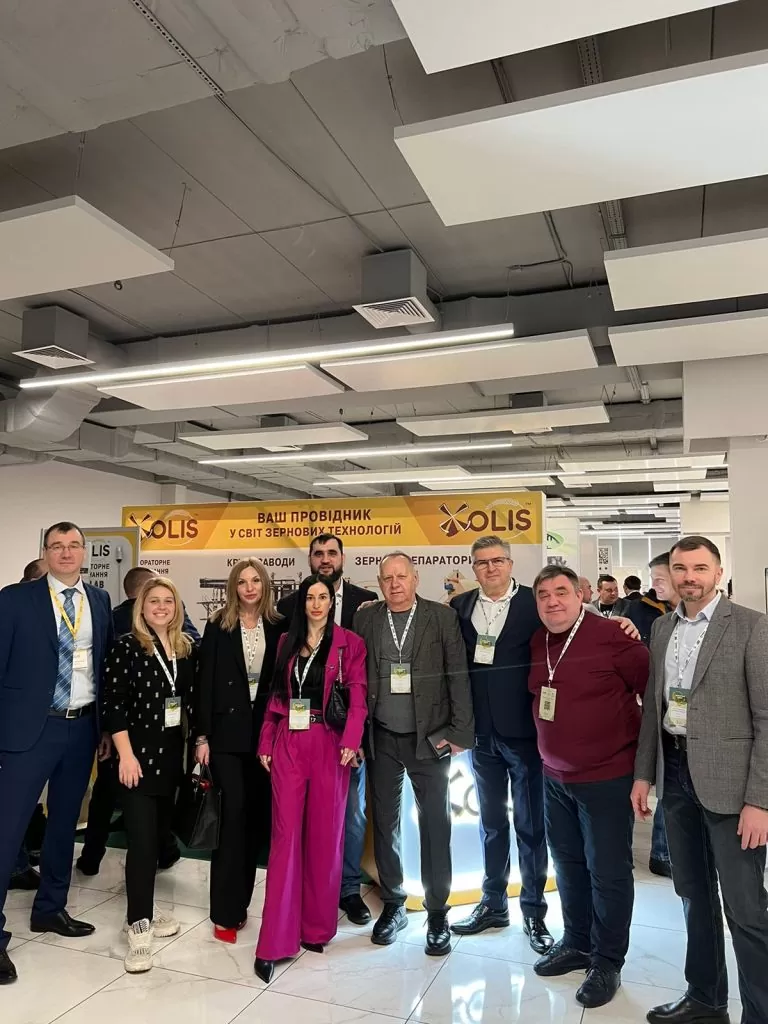
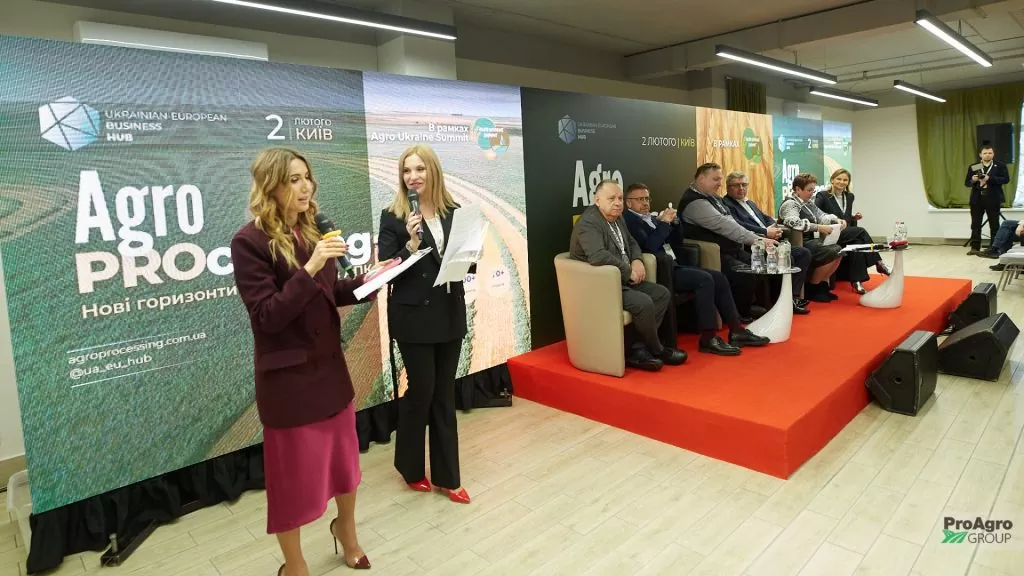
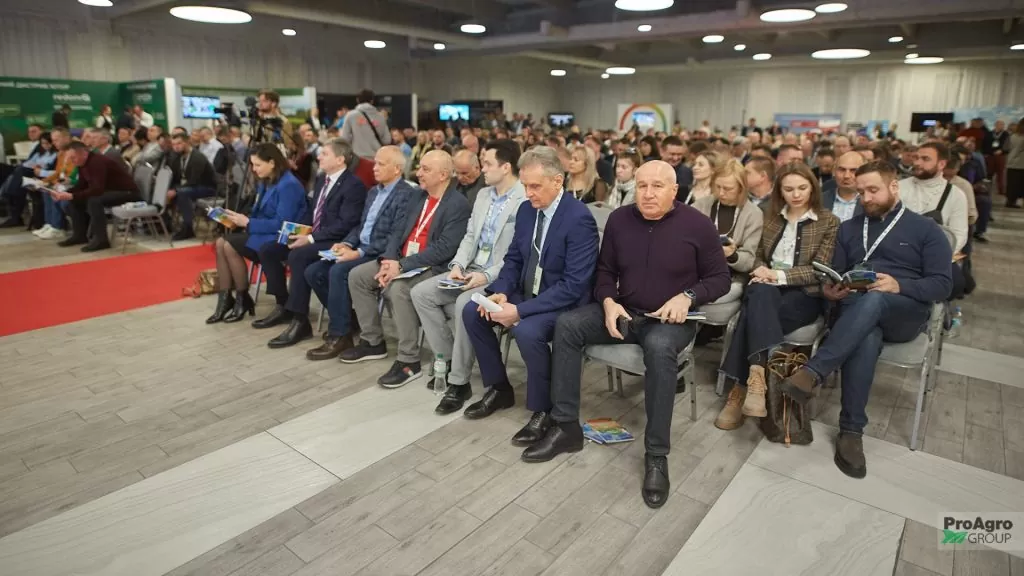
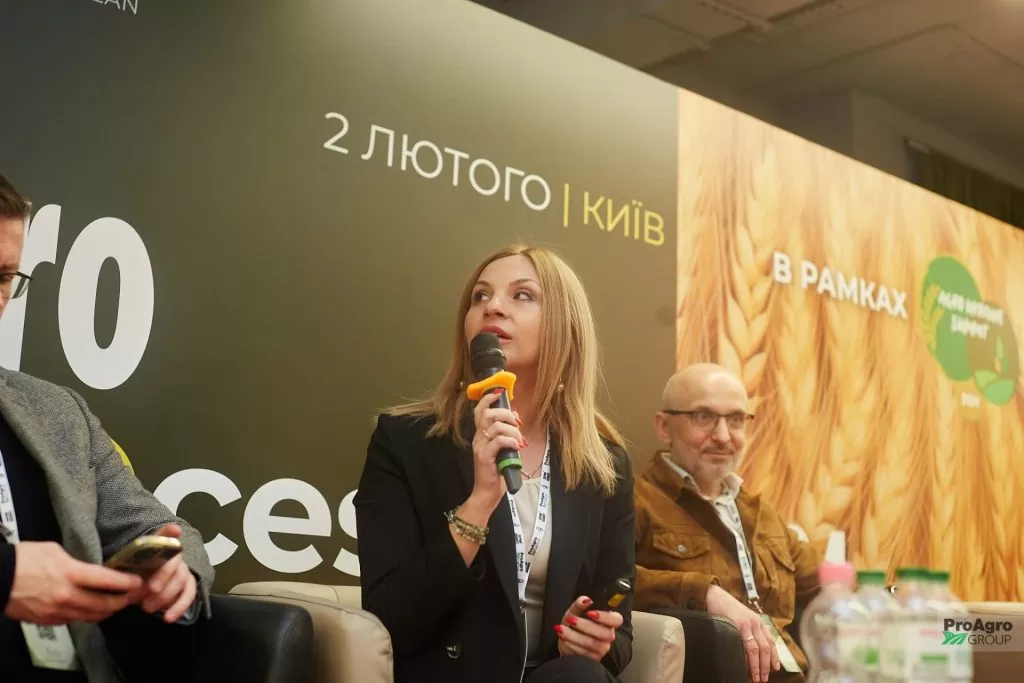
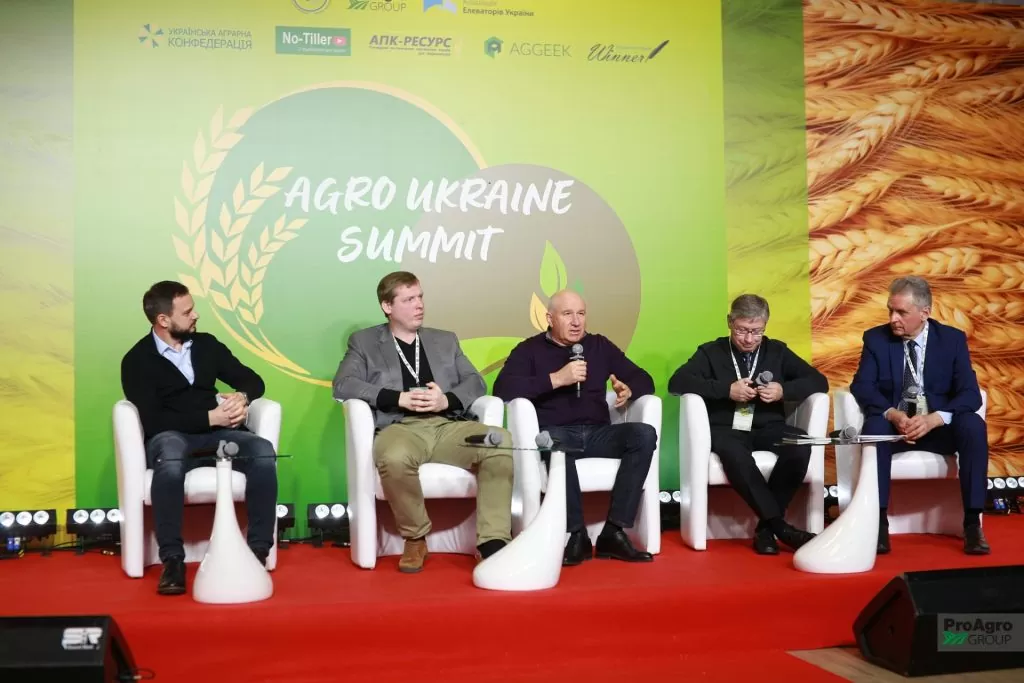
The Ukrainian Chamber of Commerce and Industry / Ukrainian CCI became a partner of the 2nd International Women's Entrepreneurship Forum, organised by the Athens Chamber of Commerce and Industry and the National Network of Women Entrepreneurs of Greece with the support of the Ministry of Foreign Affairs, Attica Region and the Municipality of Athens.
Anna Vynnychenko, a representative of the Ukrainian Chamber of Commerce and Industry in Poland, with the support of Gennadiy Chyzhykov, Valeriy Zabashta, Anna Lyubyma, was a speaker at the Forum and had the opportunity to report to the international community on the role of women in Ukrainian entrepreneurship.
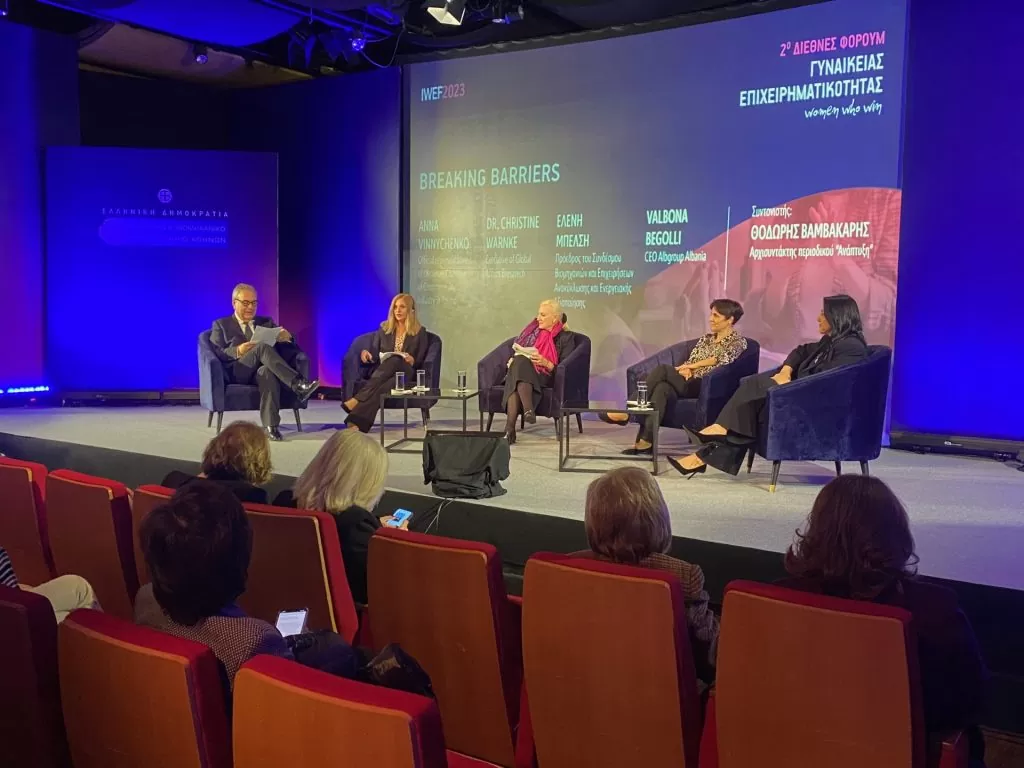
Held at the Cosmos Greek Cultural Centre of the Hellenic World Foundation and the Konstantinos Michalos Entrepreneurship Centre of the Hellenic Chamber of Commerce and Industry, the Forum provided a platform for prominent government officials, internationally recognised researchers, entrepreneurs and respected experts to exchange views and promote innovative ideas.
In addition, the Forum provided a unique opportunity for women entrepreneurs from around the world to meet, share experiences, expand their network and showcase their work.
The event consisted of two parts, namely panel discussions on topics related to new types of leadership, equality, investing in women-owned businesses and women in technology, as well as an exhibition of projects and companies led by women.
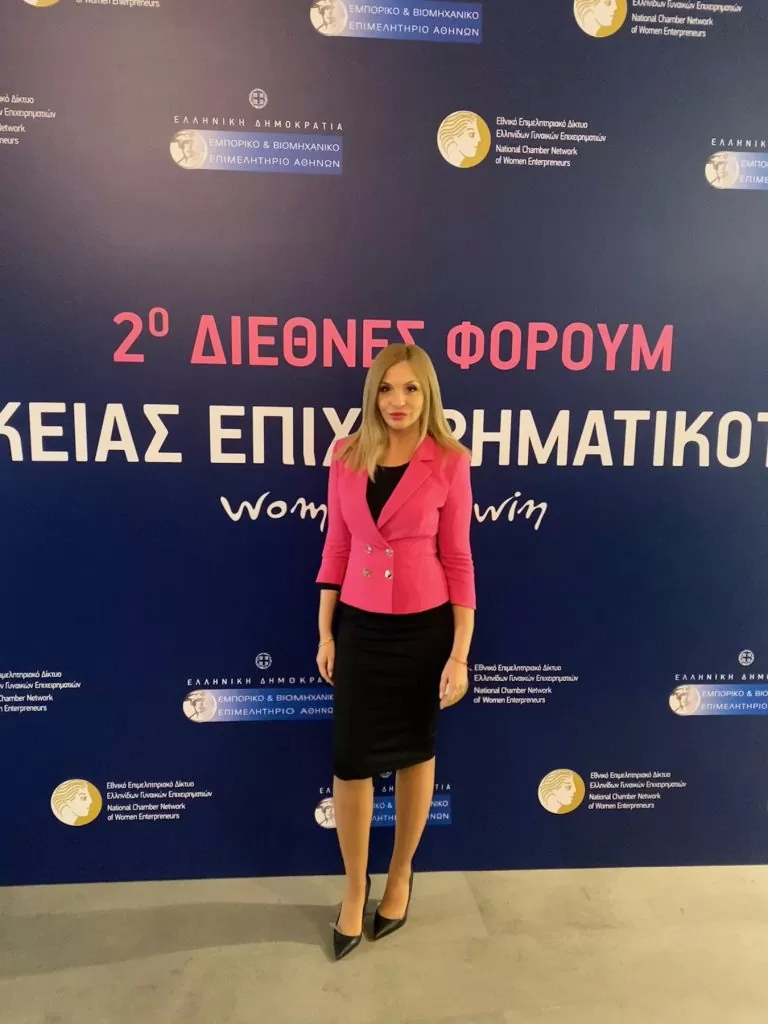
The role of women in Ukraine's post-war reconstruction will be enormous, given the country's needs and demographics. But this will require overcoming gender stereotypes: Ukrainian women still receive less for their work than men.
The State Statistics Service estimates that Ukrainian women earned 79.3% of men's wages, effectively working every fifth working day for free. There is also a gender imbalance in in-demand STEM specialities, such as mathematics and engineering, architecture and construction, agriculture, information technology, etc.
In addition, mothers are more likely to take unpaid parental leave, investing time and money in their children rather than themselves. Therefore, school and pre-school education and childcare outside the curriculum are now more than ever relevant to free up time for development.
What needs to be done?
The real solution to the situation will be to create an ecosystem with the support of the state and international partners that will provide women with inclusive access to education, training or retraining programmes, create the necessary conditions for fair competition in the labour market, and promote the development of women's social entrepreneurship.
Women in Ukraine have already demonstrated the power of the social impact economy - since February last year, we have seen businesses founded or run by women actively helping refugees and the army, including by providing not only products and humanitarian aid, but also jobs.
As the country recovers and as the role of communities in decision-making grows, the impact of such businesses will increase. It is businesses that aim to create social value for the community or society as a whole and overcome a socially significant problem, rather than just financial gain for the founders, that will be the driving force behind the recovery.
And women, with their soft skills, empathy, flexibility, responsibility, multitasking, ability to build partnerships, find and maintain a balance of interests, will be unrivalled in this endeavour. But this requires knowledge.
And it is the combination of the experience and resources of international partners with the energy, commitment and effectiveness of women-led NGOs that will be the key to building a strong social enterprise ecosystem that will respond to the challenges facing Ukraine's economy.
The role of women in Ukraine's post-war reconstruction will be enormous, given the country's needs and demographics. But this will require overcoming gender stereotypes: Ukrainian women still receive less for their work than men.
The State Statistics Service estimates that Ukrainian women earned 79.3% of men's wages, effectively working every fifth working day for free. There is also a gender imbalance in in-demand STEM specialities, such as mathematics and engineering, architecture and construction, agriculture, information technology, etc.
In addition, mothers are more likely to take unpaid parental leave, investing time and money in their children rather than themselves. Therefore, school and pre-school education and childcare outside the curriculum are now more than ever relevant to free up time for development.
What needs to be done?
The real solution to the situation will be to create an ecosystem with the support of the state and international partners that will provide women with inclusive access to education, training or retraining programmes, create the necessary conditions for fair competition in the labour market, and promote the development of women's social entrepreneurship.
Women in Ukraine have already demonstrated the power of the social impact economy - since February last year, we have seen businesses founded or run by women actively helping refugees and the army, including by providing not only products and humanitarian aid, but also jobs.
As the country recovers and as the role of communities in decision-making grows, the impact of such businesses will increase. It is businesses that aim to create social value for the community or society as a whole and overcome a socially significant problem, rather than just financial gain for the founders, that will be the driving force behind the recovery.
And women, with their soft skills, empathy, flexibility, responsibility, multitasking, ability to build partnerships, find and maintain a balance of interests, will be unrivalled in this endeavour. But this requires knowledge.
And it is the combination of the experience and resources of international partners with the energy, commitment and effectiveness of women-led NGOs that will be the key to building a strong social enterprise ecosystem that will respond to the challenges facing Ukraine's economy.
On 26.09.2023, the forum of Ukrainian entrepreneurs took place in Warsaw, Business Upgrade Poland 2023, dedicated to the development of Ukrainian entrepreneurship in Ukraine and the EU, in particular in Poland, and which became an effective opportunity for participants to get acquainted with the practical experience of business in overcoming the non-trivial challenges of this year.

As you know, European business practices are very different from Ukrainian ones, with more transparency and clarity. That is why, striving for high-quality and, most importantly, safe development of their business, Ukrainian entrepreneurs go to Poland to expand their production and conquer new horizons. Since the beginning of the war in Ukraine, more than 30,000 Ukrainian companies have been registered in Poland.
And it is extremely important to start and develop business in another country to integrate into the relevant groups and platforms as much as possible, including by attending business forums organised by both specialised Polish organisations, industry associations and representatives of the Ukrainian diaspora, who tailor the format of events to the Ukrainian entrepreneur.
The Business Upgrade 2023 Poland Forum, partnered by the Ukrainian Chamber of Commerce and Industry / Ukrainian CCI, is another successful stage of this important business event organised by Daria Didkovska for Ukrainian entrepreneurs around the world. Participation in the forum allowed the participants not only to get high-quality networking and new useful contacts, but also to join the work of the leading business associations in Poland and Europe that help Ukrainian business in every possible way.
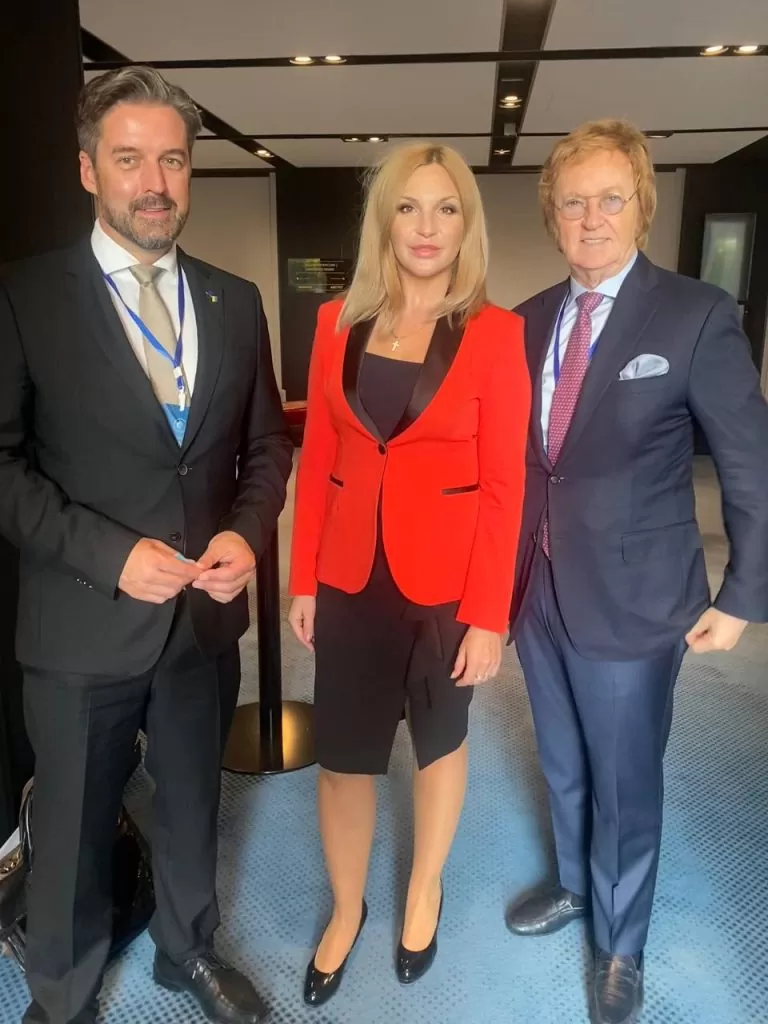
Anna Vinnichenko supported the Forum as a presenter and moderator of the first working panel "STATE AND SECTORAL BUSINESS SUPPORT: Tools from the state, unions and associations to support business: grant programmes, loan programmes, platforms for access to international markets". The panel was attended by:
- Jacek Piechota, President of the Polish-Ukrainian Chamber of Commerce, which is one of the oldest bilateral Chambers of Commerce in Poland.
- Marcin Nowacki - Vice President of the Union of Entrepreneurs and Employers of Poland ZPP, which supports Polish and Ukrainian entrepreneurs; Head of the EU-Ukraine Civil Society Platform. The topic of his speech: "Opportunities for Ukrainian initiatives. Tools for entrepreneurship development in Poland"
- Bohuslawa Rudetska, project director of the Business for Ukraine Centre at the Union of Entrepreneurs and Employers. Topic: "Support for Ukrainian business from the Business for Ukraine Centre"
- Jacques Turel - Chairman of the Board of the World Trade Centre Warsaw, Poland, who has been selected among the 100 most influential people in Poland for the last 4 years. Speech topic: "World Trade Centre Warsaw - access to investment, financial and corporate instruments. A thousand opportunities to unite the world".
- Andre Pilling - Managing Director at Eco Viva GmbH, NGO "European Ukrainian Bridge I Europäisch Ukrainische Brücke (EUB) e.V.", Chairman of the Committee on Food and Agriculture at AHK Ukraine (The German-Ukrainian Chamber of Industry and Commerce).
- Sergiy Tsivkach is the Executive Director of UkraineInvest, the government office for attracting and supporting investment (Online inclusion). Topic: "UkraineInvest - available instruments of state support. Why is it worth investing in Ukraine?".
The panelists unanimously emphasised that Ukraine's economy and business need unwavering support from partners at this time, before the start of recovery and post-war reconstruction.
We are confident that our joint work will result in the development of practical steps to support Ukrainian business and adapt it to the realities of today. I believe that despite the challenges that Ukrainian business is currently facing, new opportunities will be created.
Global Check-in is a new look at Polish exports. Although it is mainly based on trade with the countries of the European Union, it is also mature enough to start conquering hitherto inaccessible markets. At the same time, the conference also decided to address the challenges of the single European market.
An important element of the conference was the topic of electronic commerce. We see the need to open not only new markets, but also new sales channels. Despite the high level of online sales in the domestic market, there are still very few companies using e-commerce to sell abroad.
Global Check-in is an invitation to think more broadly about exports both geographically and from the supply side. Both the name and the formula of the conference do not coincidentally indicate travel: entering each new market requires preparation and is a form of expedition. However, we have no illusions: export is not sightseeing tourism and pleasant business trips (although they can be like that!). Exporting is hard work that can be profitable.


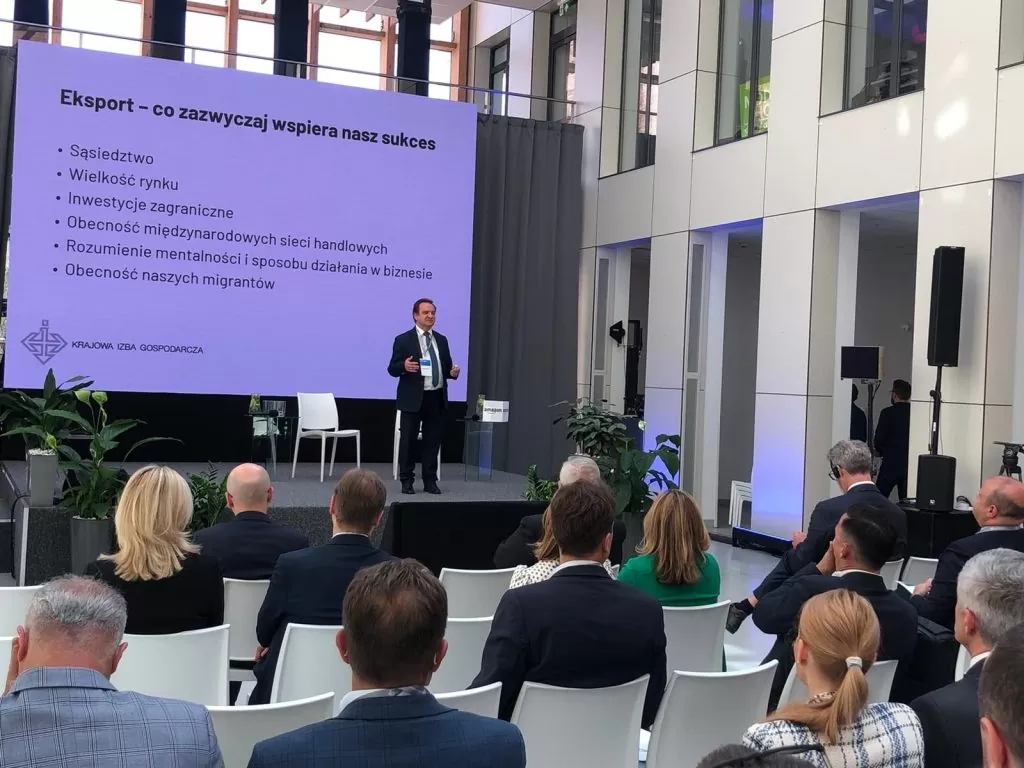
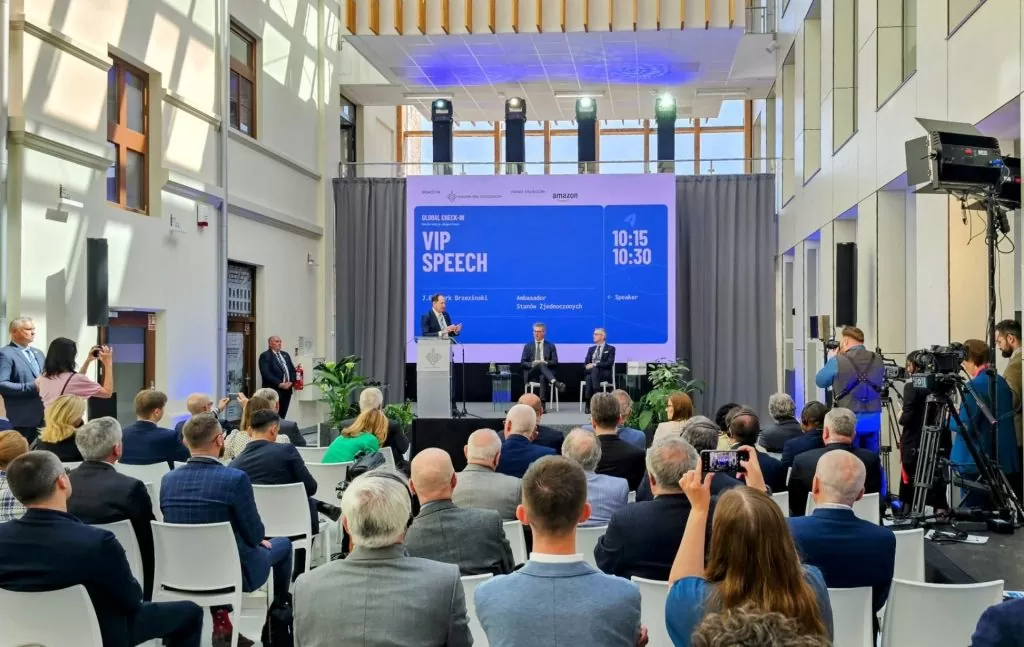

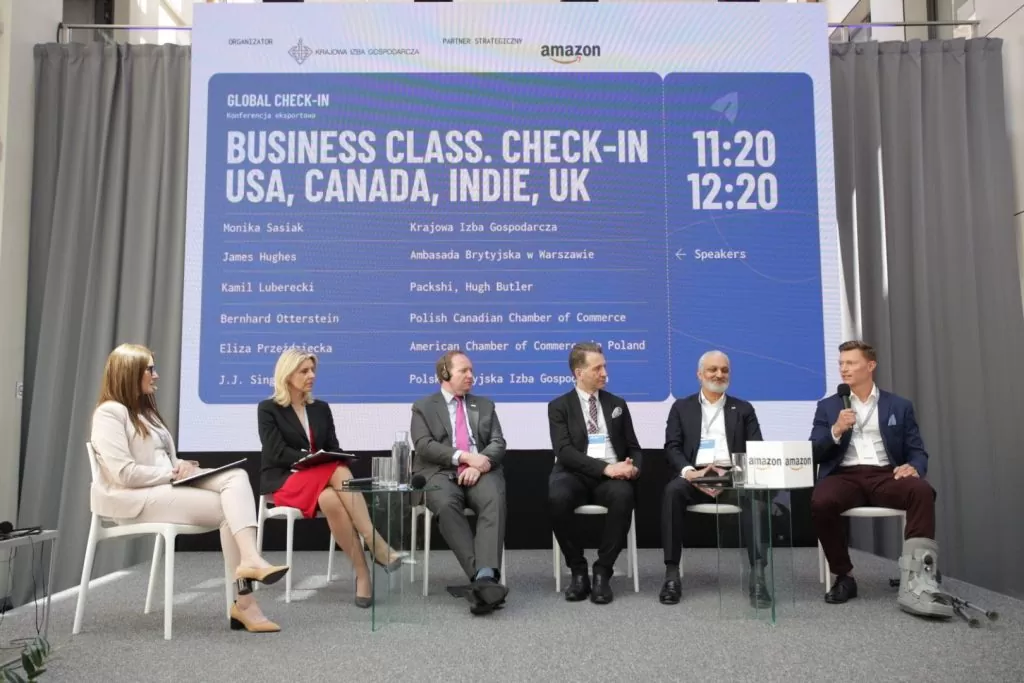
1
On May 18, 2023, a large-scale event dedicated to international logistics, forwarding and transport "LOGISTICS OF ROAD TRANSPORTATION - Ukraine, Poland, Europe" took place in Warsaw. The conference is aimed at improving Ukraine-EU bilateral relations in the field of international transport, the current state of the EU transport market, current trends in international transport, economy and efficiency, as well as financial and risk management in the TSL industry.
The conference has about 200 participants, including world leaders in logistics, government officials, lawyers and financial experts, as well as representatives of Polish and Ukrainian business.
The Chamber of Commerce of Ukraine and InterTradeAgency acted as partners of the conference, Anna Vinnychenko as the official representative of Chamber of Commerce of Ukraine in Poland and the head of InterTradeAgency had the honor to summarize the event, among which the following can be highlighted:
- The most important problem of Ukrainian-Polish logistics today is the long queues at the borders. In order to improve the capacity of road crossings and, as a result, reduce large traffic jams at the border, it is necessary to prepare an appeal to the relevant directorates general of the European Commission to develop a mechanism for simplifying permit procedures, as well as holding joint meetings and delegations from both countries.
- Establishing equal conditions for all market participants with their own understanding of the need to adapt to the standards of the national market. But it will be difficult to do this under completely equal conditions, because if the Polish road transport business has the opportunity to choose where to go, and choose where there are more favorable tariffs, the Ukrainian business does not have such a luxury now, and if we can only go to the EU, then the queue is for 2 weeks - this is our unalternative reality, unfortunately.
- In order to take into account all interests, it is appropriate to create a joint Polish-Ukrainian association, which will include representatives of specialized national automobile associations of Ukraine and Poland. Such an organization can form proposals from both sides and in the format of working groups at the government level. For our part, we are ready to do everything necessary for the creation of such an association from the side of Ukraine, so we are open to offers from respected partners, if they are also interested in such work.
- It became necessary to organize a cooperative (cluster) of transport companies, and representatives of the Polish TSL industry agreed to hold the necessary consultations for the implementation of this project.
We thank the International Payments Association for organizing and holding the conference at the highest level, because only coordinated actions will help to improve the business model, optimize costs and improve the commercial offer. Joint work and healthy competition will always be the key to the development of the road transport industry in both Poland and Ukraine.
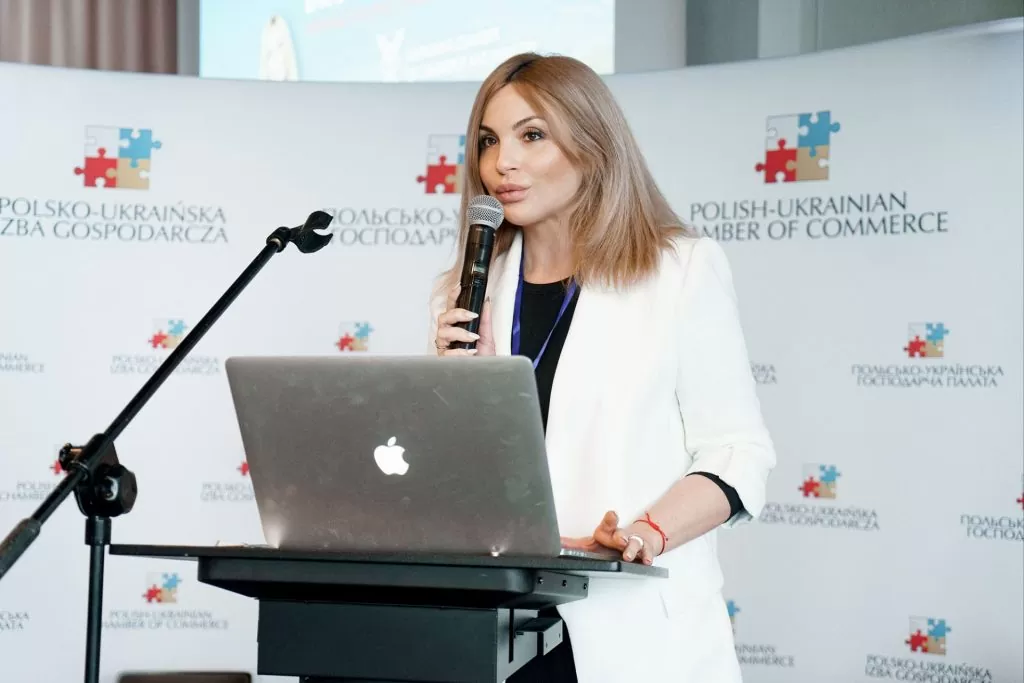
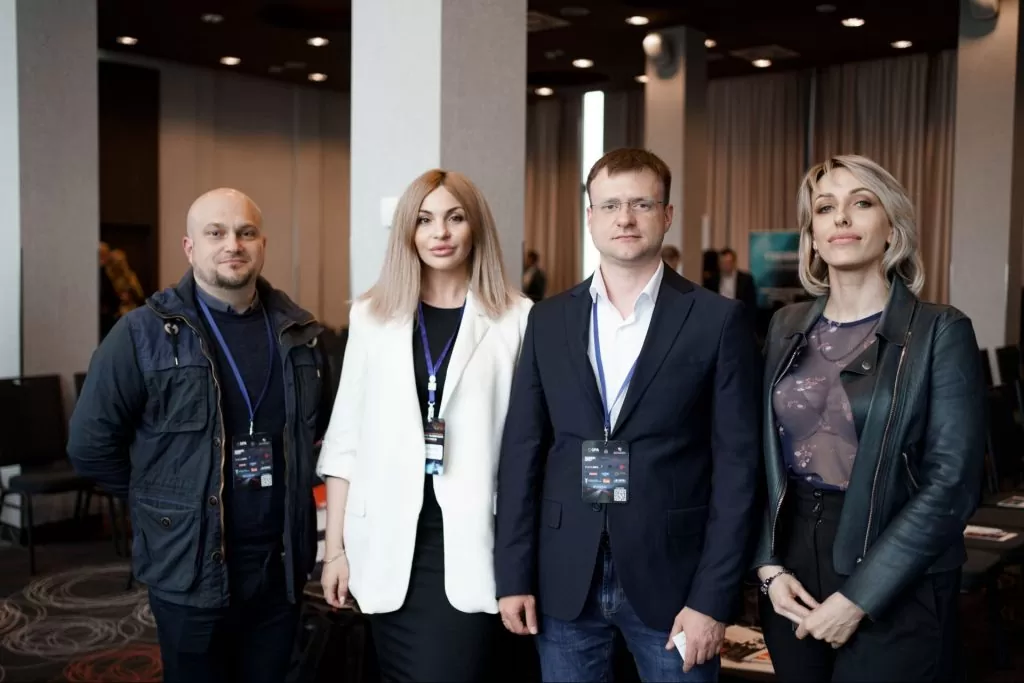
Recently, the Polish government introduced a complete ban on the import of Ukrainian agricultural products into its territory. Almost everything produced in Ukraine fell under the ban: honey, any kind of meat, vegetables, fruits, cereals, eggs, grain, etc.
According to some estimates, the losses of Ukrainian farmers reached $143 million in just 2 weeks. However, such a decision turned out to be a crisis for many Polish entrepreneurs, who for years imported agricultural products from Ukraine for their own processing, had stable business relationships and guaranteed volumes of supplies, which ensured for Polish consumers a more affordable price for products produced in Poland.
And on May 2, this ban was partially lifted. Anna Vinnychenko gave her comment on this situation as an expert of the Chamber of Commerce and Industry of Ukraine. https://ucci.org.ua/press-center/expert-opinion/polshcha-vidnovila-eksport-silgospproduktsiyi-z-ukrayini?fbclid=IwAR1RhbfIauFX6Fnlk9_ZJfvxYgFO33bJDSjg7jOZNodFOMGJU0ry9TEvcJs
April 2023 turned out to be a period of great trials for Ukrainian producers and exporters of agricultural products, because on April 15, the government of Poland (along with Bulgaria, Hungary, Romania and Slovakia) banned any import of a wide range of basic agricultural products and other food until June 30, 2023 ( https://dziennikustaw.gov.pl/D2023000071701.pdf).
Moreover, almost all agricultural products produced in Ukraine fell under the ban: honey, vegetables, winemaking products, fruits, eggs, milk and dairy products, cereals, meat, seeds, grains, etc. Such a decision turned out to be a crisis not only for the Ukrainian exporter, but also for many Polish entrepreneurs, who for years imported agricultural products from Ukraine for their own processing, had stable business relationships and guaranteed volumes of supplies, which ensured a more affordable price for the products produced for Polish consumers goods in Poland.
A week later, the Polish authorities still made a decision to resume the transit of Ukrainian agricultural products through the territory of Poland. Moreover, not a single ton of Ukrainian agricultural products will remain in Poland, said Minister of Agriculture Robert Telus (https://www.rmf24.pl/raporty/raport-wojna-z-rosja/gospodarka/news-transport-ukrainskiego-zboza-plombowany -i-z-gps-wznowienie-w,nId,6725016#crp_state=1). "We hope that not a single wagon or truck will stop in Poland, except for a short stop and onward journey to Europe or Polish ports," Development Minister Waldemar Buda said. Also, Robert Telus reported that grain transports from Ukraine, which will go through Poland, will be accompanied and controlled by the SENT system, that is, sealed with GPS seals. Thanks to this, it will be possible to track them, whether they really left Poland. Warsaw expects that by July 2023 surplus grain - about four million tons - will be removed from Poland to make way for a new harvest.
Official Kyiv sent notes of protest to the Polish embassy, as well as the EU representation in Ukraine, and emphasized in them that the situation is categorically unacceptable, and the introduced restrictions on the import of Ukrainian agricultural products are such as to contradict the Association Agreement, writes "Evropeyska Pravda". As Deputy Minister of Economy Taras Kachka stated during the Brussels Economic Forum, Ukraine received $143 million in losses.
As a result, the European Commission reached an agreement in principle with Bulgaria, Hungary, Poland, Romania and Slovakia regarding Ukrainian agri-food products, the import of which these countries limited. According to the official announcement (https://ec.europa.eu/commission/presscorner/detail/en/ip_23_2562), the European Commission has adopted exceptional and temporary precautionary measures regarding the import of a limited number of goods from Ukraine under the exceptional guarantees of the Regulation on autonomous trade measures. These measures are necessary in view of the exceptional circumstances of severe logistical bottlenecks in five Member States. The measures concern only four agricultural products - wheat, corn, rapeseed and sunflower - originating in Ukraine. They are aimed at eliminating logistics bottlenecks for these products in Bulgaria, Hungary, Poland, Romania and Slovakia. The measures will enter into force on May 2 and will last until June 5, 2023.
During this period, wheat, maize, rapeseed and sunflower seeds originating in Ukraine may continue to be released into free circulation in all EU Member States, except for the five frontline Member States: Bulgaria, Hungary, Poland, Romania and Slovakia. Products can continue to circulate or transit through these five Member States using a common customs transit procedure or go to a country or territory outside the EU.
The EU will also allocate a support package of 100 million euros for affected farmers in 5 member states. In exchange for this, the five EU countries will cancel unilateral measures banning the import of Ukrainian products.
And to implement this agreement, the Decree of the Minister of Development and Technology of Poland dated May 2, 2023 finally canceled the ban on the import of agricultural products from Ukraine (https://dziennikustaw.gov.pl/DU/2023/840). The resolution enters into force from the day of its publication, the text of the document states.
In this way, the European Commission replaced unilateral decisions in 5 member states with its own regulation and now the import ban applies to only four agricultural products: wheat, corn, rapeseed and sunflower seeds from Ukraine. As we can see, vegetable oil is not included in the list of "prohibitions". However, in announcing the restrictions, European Commission Deputy President Valdis Dombrovskis added that the EU executive would conduct "safeguard investigations" into some other products, including sunflower oil.
At the same time, we can state with relief that Ukrainian agricultural producers can still export products to Poland and other EU countries and establish new business relationships to strengthen the economy of Ukraine, which in the conditions of martial law is an extremely important function of Ukrainian business.
We are constantly contacted by Polish business representatives with numerous inquiries regarding the purchase of Ukrainian goods, including meat, vegetables, fruits, sugar, eggs, etc. Our permanent work is trade mediation between business circles of Ukraine and Poland. Searching for business partners and establishing mutually beneficial business relations is one of the effective steps to achieve the set goal.
If representatives of the agricultural business of Ukraine are interested in trade and economic cooperation in the Ukraine – Poland/EU format, we suggest filling out the questionnaire-form at the link https://forms.gle/6AFew9Foz8SCa2R38 and providing detailed information about the goods or services for which there is a demand or offer . By receiving the specified information, we will be able to provide prompt feedback regarding potential interested parties, because we well understand that the main thing for Ukrainian business is to establish contacts and choose a reliable partner, cooperation with which will help to achieve the desired results.
Anna Vinnychenko, official representative of the Chamber of Commerce and Industry of Ukraine in Poland, head of the international company InterTradeAgency
The economic award of the President of the Republic of Poland, the Polish-Ukrainian forum, debates about the security of Poland and the Three Seas Region and support for Ukraine - these are just some of the highlights of the autumn edition of the "Congress 590" event, which took place in Rzeszów under the slogan "We unite everyone".
Congress 590 has become part of the landscape of the most important economic events in Poland for several years. The 7th edition of this extremely valuable initiative brought together, as in previous years, a group of outstanding representatives of business, well-known analytical companies, universities, mass media, as well as political and public figures, noted Prime Minister of Poland Mateusz Morawiecki. "This year's Congress is held under the slogan "We unite everyone". It is difficult to find a more accurate diagnosis of the situation in which our region found itself after the Russian invasion of Ukraine. The "Three Seas Initiative" is now at the very center of the geopolitical transformations taking place in Europe. A unique place in this process is occupied by Poland, which became the most important direction of escape for the inhabitants of cities and villages threatened by the war. For many months, he also remained an irreplaceable link in the chain of humanitarian and military aid coming to Ukraine from all over the world," he added.
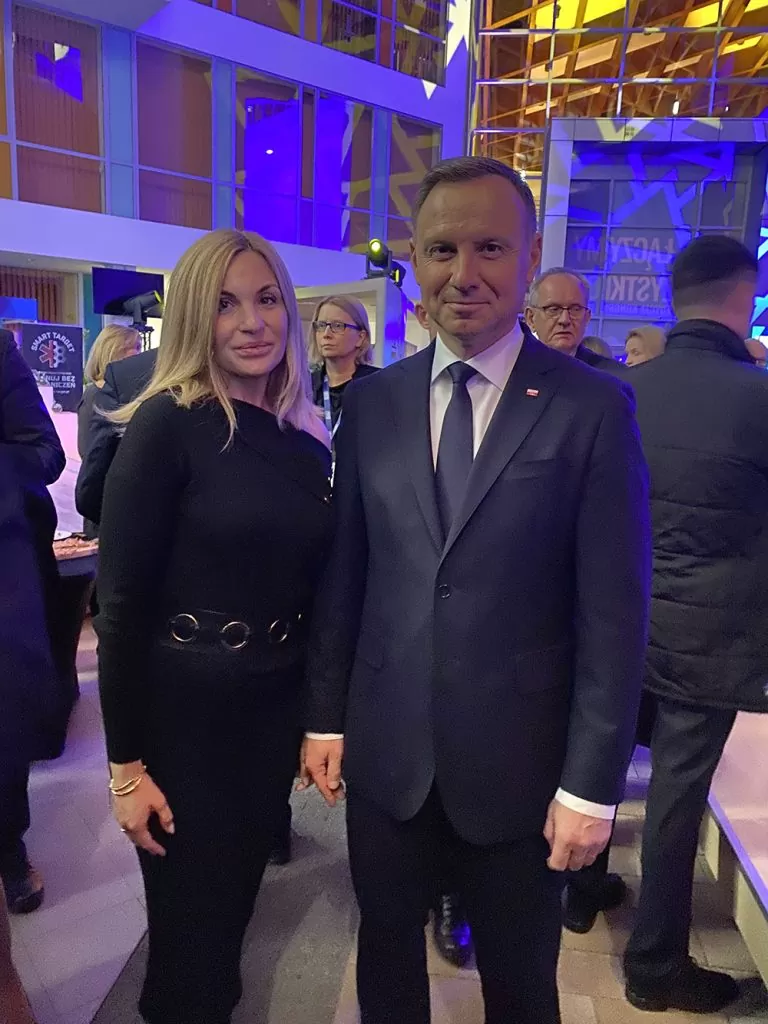
Together with a powerful team of the Chamber of Commerce and Industry of Ukraine headed by the President of the Chamber of Commerce and Industry Gennady Chyzhikov, the Vice-President of the Chamber of Commerce Valery Korol, the Director of the International Cooperation Department of the Chamber of Commerce of Ukraine Anna Lyubima, the official representative of the Chamber of Commerce of Ukraine in Poland Anna Vinnychenko took part in the Polish-Ukrainian business forum in within the framework of Congress 590 - a powerful annual event in the economic life of Poland. We had the honor to show our respect to the President of Poland, Andrzej Duda, who is a true Friend of Ukraine.
There is a lot of information and contacts.
Interestingly, respected Polish experts highly praise the activity of Ukrainian businesses, including those that started working after the relocation: the business qualities and business standards inherent in Ukrainians allowed some enterprises to compete on the Polish market in a few months.
